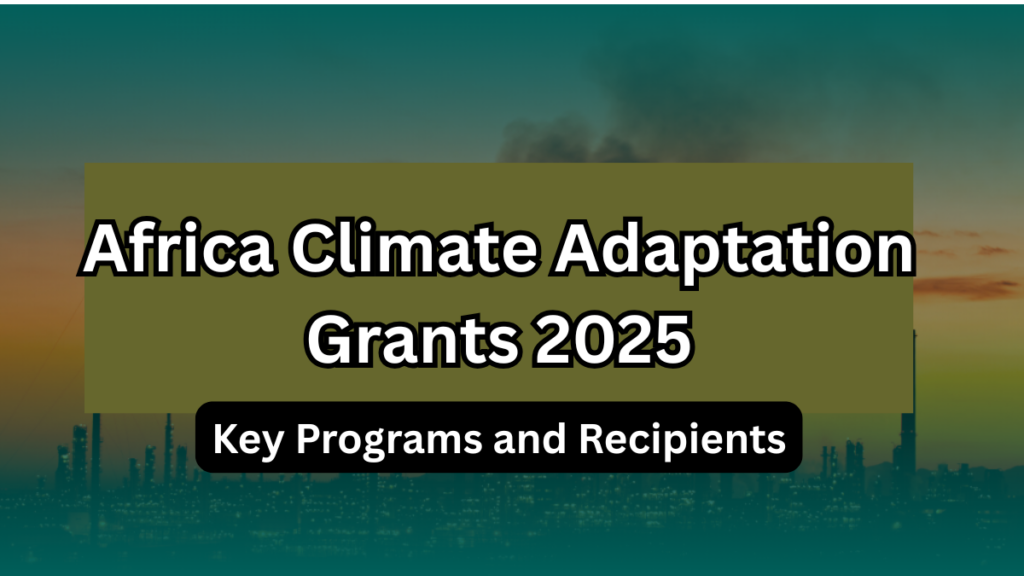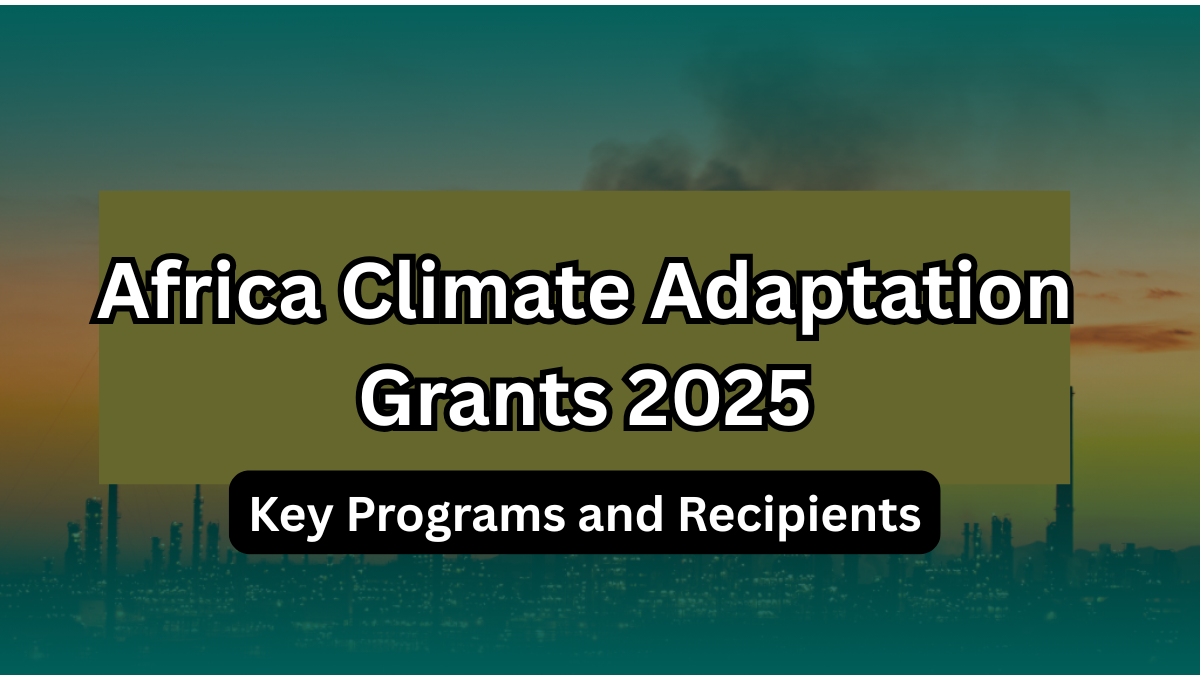As the effects of climate change become more intense across Africa—think rising temperatures, floods, and longer droughts—there’s a growing urgency to adapt. The 2025 Africa Climate Grants have been introduced to support precisely this: helping vulnerable regions strengthen their resilience through innovative climate adaptation strategies.
This article breaks down the key programs, recipients, and impact of these adaptation funds—plus how interested groups can get involved.

What Are Africa Climate Adaptation Grants?
Africa Climate Grants are financial resources provided by international agencies, development banks, and governments. Their goal is to help African communities prepare for and adjust to the risks brought on by climate change.
Objectives of These Grants:
-
Promote food and water security
-
Enhance local climate resilience
-
Support green infrastructure and technology
-
Build community-led adaptation models
Key Africa Climate Grants in 2025
Here are the major funding programs launched or expanded in 2025 under the Africa Climate Grants framework:
| Grant Program | Managing Body | Focus Area | Funding (USD) |
|---|---|---|---|
| Green Climate Fund – Africa | Green Climate Fund (GCF) | Infrastructure, agriculture | $1.2 billion |
| AfDB Adaptation Plan | African Development Bank (AfDB) | Energy, urban resilience | $950 million |
| Africa Adaptation Acceleration Program (AAAP) | AfDB + Global Center on Adaptation (GCA) | Food systems, youth, water | $1 billion |
| UK-Africa Climate Partnership Fund | UK Government | Disaster readiness, local planning | $300 million |
Top Recipients of Adaptation Funds in 2025
African countries most exposed to climate stress are among the main recipients. Here’s how the grants are being applied in practice:
Ethiopia – Resilient Agriculture
-
Focus: Drought-resilient crops, community climate training
-
Funding: $50 million via AAAP
-
Impact: Over 2 million farmers reached
Senegal – Coastal Defense
-
Focus: Mangrove restoration and sea-wall building
-
Funding: $40 million from GCF Africa
-
Outcome: Major shoreline areas now protected from erosion
Kenya – Renewable Microgrids
-
Focus: Off-grid solar and wind in vulnerable regions
-
Funding: $30 million under AfDB adaptation scheme
-
Impact: Thousands of rural households with clean energy
Mozambique – Flood Infrastructure
-
Focus: Strengthening riverbanks, building early warning systems
-
Funding: $60 million through UK-Africa Climate Fund
-
Benefit: Major reduction in flood-related displacement
Why These Grants Matter
These adaptation funds are making tangible changes in how communities handle climate impacts. Here’s why they matter:
-
Strengthen rural and urban climate resilience
-
Reduce the risk of migration due to extreme weather
-
Create green jobs and youth training opportunities
-
Encourage local innovation in climate technologies
How to Apply for Africa Climate Grants
If you’re part of a government agency, NGO, or research organization in Africa, here’s how you can tap into these adaptation funds:
Application Process:
-
Define your adaptation project goals
-
Match your project with relevant grant programs
-
Submit documentation including budget and community benefits
-
Apply through official funder portals or regional offices
-
Await review and feedback
Some programs may also offer technical assistance to help refine your proposal.
FAQs
What are Africa Climate Grants used for?
They are used for projects focused on climate resilience, including sustainable farming, clean energy, water management, and disaster preparedness.
Who can apply for adaptation funds?
Typically, government departments, NGOs, research institutions, and community-based organizations are eligible. Some programs may involve partnerships with private sector entities.
Are individuals eligible for funding?
Direct funding to individuals is rare, but community-based programs often include training, materials, or support that individuals can benefit from.
What’s the long-term vision of these grants?
These grants aim to build long-term resilience, reduce climate risk, and empower local solutions for Africa’s climate challenges.
Final Thoughts
The 2025 Africa Climate Grants represent more than just financial support—they’re a commitment to the continent’s future. With the right use of adaptation funds, African nations are better positioned to withstand climate shocks, protect ecosystems, and improve livelihoods. By investing in both people and infrastructure today, these programs are laying the foundation for a more sustainable tomorrow.
Click here to learn more
Sachin is a dedicated writer specializing in education, career, and recruitment topics, delivering clear and actionable insights to empower readers.
